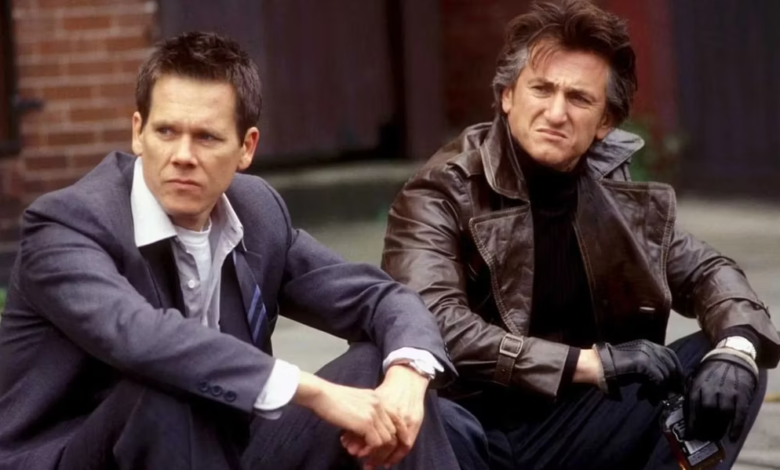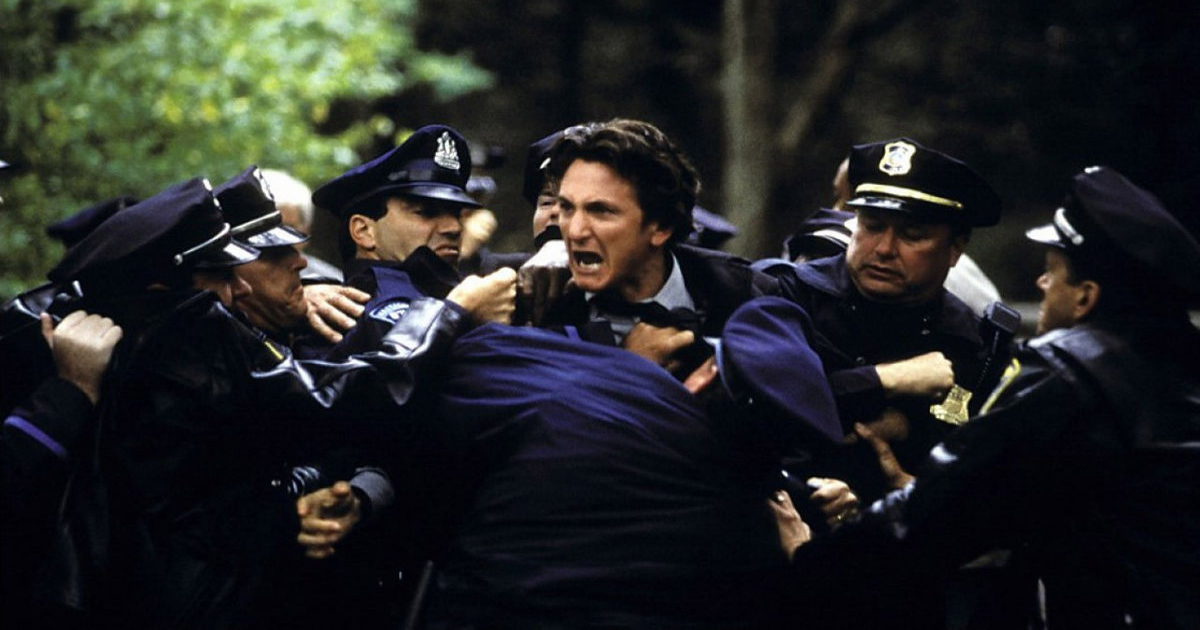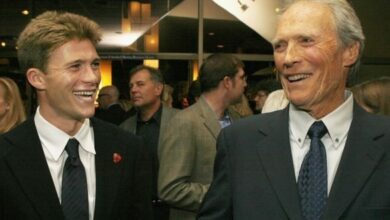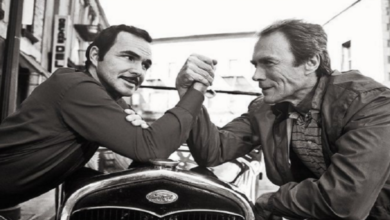Mystic River: Why Clint Eastwood’s Best Movie Still Holds Up Today
Clint Eastwood has made several films over the years as a director, but with Mystic River, he crafted one of the best murder mysteries in cinema.

A filmmaker of Clint Eastwood‘s caliber is going to have a filmography full of gems. Primarily known for his work in Westerns, biopics, and military dramas, every so often, Eastwood steps outside his comfort zone and delivers in a genre that would seem completely unexpected on paper. That happened in 2003 with Mystic River, a neo-noir murder mystery drama that seems a bit forgotten or overlooked, even though it was a financial success and earned six Academy Award nominations. It represents Eastwood at his very best, breathing vivid life into complex characters as he examines a plethora of themes that range from loyalty, friendship, revenge, and, ultimately, forgiveness.
Mystic River is based on the 2001 novel of the same name by Dennis Lehane, and it follows the lives of three childhood friends, Jimmy Markum (Sean Penn), Sean Devine (Kevin Bacon), and Dave Boyle (Tim Robbins), living in Charlestown, Boston in 1975. Dave is kidnapped by two men claiming to be police officers, and he’s sexually abused by them over a four-day period until he escapes. The traumatic event shapes the three friends, and they ultimately lead very different lives twenty-five years later.
Jimmy is an ex-con that now owns a convenience store in the neighborhood, Sean works for the Massachusetts State Police as a detective, and Dave is your everyday blue-collar worker that still lives with the trauma of being abducted and raped. Their lives are forced together once again through tragedy when Jimmy’s daughter Katie (Emmy Rossum) is found murdered, and friendship is tested when all signs point to Dave being the murderer.
Mystic River Is a Departure From Clint Eastwood’s Other Work
Eastwood tackles the material in Mystic River with a sure and confident hand. It also represents a unique departure from some of his other films. Much of the action takes place under the cover of darkness, and Eastwood is able to find beauty in that darkness. The filmmaker focuses on a character’s eyes or the gleam of a weapon, for instance, as darkness permeates most of the scene.
For the scenes that take place during the day, the filmmaker opts for tight close-ups that linger over the emotions of his impressive cast. There is something uncomfortably intimate about Mystic River, and that has much to do with the subject matter. None of this story is particularly easy to digest, and Eastwood adds to that discomfort with his choices to frame scenes in such a way that’s almost intrusive. The audience feels a growing sense of dread and tension as more of the story unfolds.
Using Lehane’s novel and Brian Helgeland’s screenplay as a blueprint, Eastwood profoundly explores generational trauma and how the sins of the past can leave a permanent mark on our present. Even though the abuse only happened to Dave, the effects of the event leave a mark on all three friends, with Dave being the primary victim and the others feeling a sense of survivor’s guilt for not being subjected to it themselves.
The ordeal forever changes their union because they’re never quite able to look at each other the same way again, as each friend deals with the trauma differently. Jimmy is stunned by the act of abuse but can’t give Dave the support he needs, which then bleeds into their present when Jimmy begins to suspect that Dave had something to do with his daughter’s murder. He doesn’t want to consider that his friend would do something like this because of the trauma he endured as a child, but as evidence mounts against him, Jimmy has to decide if friendship and loyalty overshadow his need for vigilante justice. The story is rich with so many complexities that make it some of Eastwood’s most compelling work as a filmmaker.
Eastwood also takes his time with the story and lets it unfold as it should. Mystic River is very nuanced, and he knows he’s dealing with heartbreaking subject matter that requires patience and respect. The story is grounded in so much reality that Eastwood seems keenly aware that a viewer might be an actual victim of this kind of abuse themselves, so he delicately approaches the topic and gives it the emotional weight it deserves.
He also shows the uncomfortable side of abuse where the victim, unfortunately, can be shamed because of the event. Dave becomes an outsider later in his life, even with his close friends, something that sadly comes along with this kind of trauma. Eastwood approaches all of this responsibly and provides a very balanced outlook to all the events transpiring on screen.
Mystic River has become known for its powerhouse performances, and Eastwood pulls the very best from his ensemble cast. While the scenes with the young actors are brief in the beginning, they set the tone of who these people will be twenty-five years later. Dave becomes the outcast because of the event; Jimmy lacks empathy and doesn’t trust authority, while Sean becomes the grounded one of the bunch and a police officer in an attempt to prevent a tragedy like this from ever happening again.
Clint Eastwood Pulls Powerhouse Performances From His Cast
Tim Robbins, Sean Penn, and Kevin Bacon do a great job conveying the unspoken tension between all three of these characters. There is a sense of loyalty, but so much has taken place over the years that it has forced them all to lead very different lives. As a group, they are uniformly excellent. You feel the history between the characters and the bonds that were broken, only to be reopened by a new traumatic event.
On their own, Penn gives the performance of a lifetime as Jimmy, and it’s not a shock that this turn finally earned him his first Academy Award for Best Actor. Penn is a dominant presence in all of his scenes, and there is a sense of uncertainty whenever he’s around because you don’t know exactly what move he will make.
That’s not to say he doesn’t display layers. All of that bravado is broken once he finds out his daughter is murdered. It’s hard to pinpoint a director’s best scene on film, but what Eastwood pulls out of Penn during the “Is that my daughter?” sequence represents some of his very best work as a filmmaker.
Robbins also received an Academy Award for Best Supporting Actor for his work here, representing a much-deserved win. As Dave, Robbins is the tragic and emotional heart of the story. The viewer feels instant empathy for Dave due to what he went through as a child, but you’re also left questioning everything when it seems like Dave could be the one who murdered Katie.
Robbins keeps you on your toes throughout, making you question his innocence while also seeing the tenderness in him as he interacts with his own child, who is just about the age he was when he was abused. As for Bacon, of the three male leads, he gives the most subdued performance, but it suits the character. He’s trying to make everything right and keep it all together. It’s a subtle performance that carries its own emotional weight.
Eastwood also makes the supporting roles worthy of attention. Marcia Gay Harding, as Dave’s wife Celeste, puts in powerful work here that earned her a Best Supporting Actress Oscar nomination, while Laura Linney more than holds her own with Penn as his second wife, Annabeth. In addition, Laurence Fishburne also fills in as Sgt. Whitey Powers in another excellent part.
Mystic River is a haunting and poetic motion picture that showcases a director laying it all out on the table. Eastwood gives the audience everything he has as a director and pours it out across the screen in a film that is just as powerful twenty years after its initial release.







